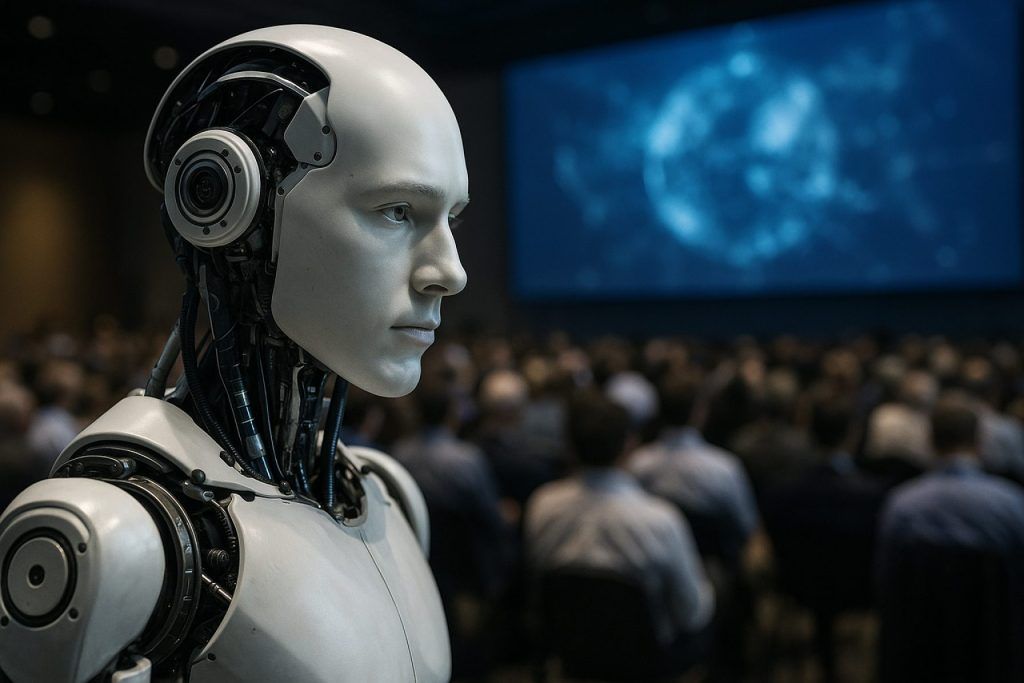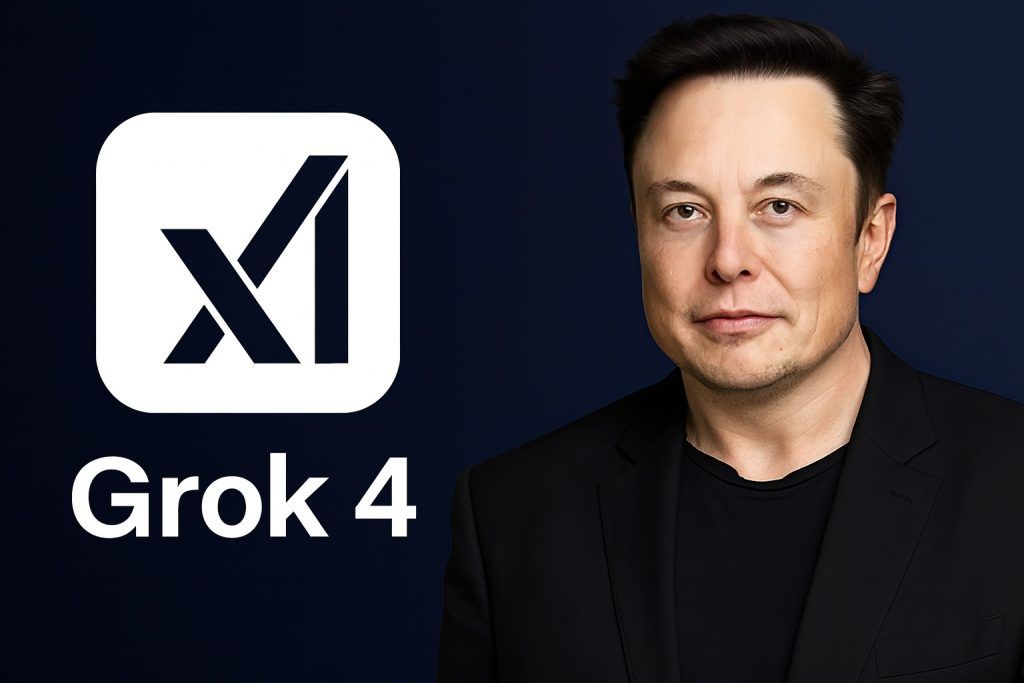- AI accelerates content creation and optimization with tools like Jasper and OpenAI’s GPT-4, producing first drafts from outlines in minutes.
- By late 2024, around 15–20% of Google searches included AI-generated overview answers, changing how traffic is captured.
- In 2025, ChatGPT’s website became the fifth-most-visited site globally, with about 5 billion visits per month.
- Despite AI growth, 49% of consumers still click traditional search results for deeper information.
- In 2025, 51% of marketers are using AI tools to optimize content for search engines.
- The Great Decoupling: organic CTR can drop by up to 4X when AI summaries appear in search results.
- Google’s core AI-enabled algorithms (RankBrain, BERT, MUM) shift focus from exact keywords to user intent and topical authority.
- AI-powered technical SEO and automation tools like AlliAI, Paige by Merchynt, and automated schema tagging help fix and optimize sites at scale.
- Notable AI-powered SEO platforms in 2025 include HubSpot’s AI SEO Tools, SE Ranking AI Toolkit and AI Overviews Tracker, Outranking.io, and content-optimization tools like Frase, MarketMuse, and NeuronWriter.
- By 2030 generative search will be the norm, with multi-modal and voice search expanding; brands must optimize for AI assistants and uphold ethical AI use and strong E-E-A-T.
The intersection of artificial intelligence (AI) and search engine optimization (SEO) is transforming how marketers approach online visibility. In 2025, AI isn’t killing SEO – it’s revolutionizing it singlegrain.com. Search is no longer confined to the traditional ten blue links; it’s expanding into AI-generated answers, voice assistants, and intelligent algorithms. This report explores how AI is supercharging SEO practices, how SEO strategies are evolving to keep up, and what the future may hold.
Despite periodic buzz that “SEO is dead,” the reality is that people are still searching – they’re just using more AI-powered tools to do it searchengineland.com searchengineland.com. In late 2024, nearly 20% of Google searches included AI-generated overview answers singlegrain.com, and by 2025 ChatGPT’s website became the 5th most visited site globally with around 5 billion visits per month mikekhorev.com. Consumers are embracing AI-driven search for quick answers, yet 49% still click traditional search results for deeper information searchengineland.com. In short, SEO isn’t dying – it’s fracturing across new platforms. Marketers must adapt by integrating AI into their SEO toolkit and optimizing content for both human users and AI systems. Let’s dive into the key developments shaping “AI SEO” in 2025 and beyond.
AI-Powered SEO: How AI Is Improving Optimization Practices
AI is being applied across almost every facet of SEO, from creating content to technical site audits. By processing vast amounts of data and automating repetitive tasks, AI enables SEO professionals to work faster and smarter. Below we break down how AI enhances core SEO activities:
AI Content Creation & Optimization
Crafting high-quality, SEO-friendly content has traditionally been labor-intensive. Now, AI writing tools and generative models can produce first drafts of articles, product descriptions, or social media posts in a fraction of the time. Marketers use AI to brainstorm topics and even generate full blog drafts based on target keywords salesforce.com salesforce.com. For example, tools like Jasper and OpenAI’s GPT-4 can take an outline and expand it into a comprehensive article. This speeds up content production, but human oversight remains vital – AI content often requires editing for accuracy, tone, and clarity blog.hubspot.com. (In fact, when the tech site CNET experimented with AI-written articles, over half of them contained errors, forcing editors to issue 41 corrections out of 77 AI-generated stories theverge.com.)
AI doesn’t just write content; it also helps optimize it. AI-based content optimization software can suggest relevant keywords, improve readability, and ensure the content aligns with user intent. For instance, AI can analyze a draft and recommend adding specific semantically related terms or FAQs to better cover a topic salesforce.com salesforce.com. Some platforms even dynamically generate meta tags and alt text based on real-time data, saving SEOs the tedious work of manual on-page tuning salesforce.com. The result is content that not only reads well for users but is also structured for search engine algorithms.
Key benefit: AI-assisted content creation allows marketers to produce more content at scale while maintaining (or improving) quality. It automates the grunt work of SEO writing – generating ideas, outlines, and even rewrites – so that human creators can focus on strategy and creativity. Google’s own guidance is that “high-quality content, regardless of whether it’s human or AI-generated,” will be rewarded in search developers.google.com. In other words, using AI to create helpful, people-first content is acceptable, but using it to mass-produce spam is not developers.google.com. Successful SEO in the age of AI means leveraging these tools for efficiency without sacrificing accuracy or expertise.
Smarter Keyword Research with AI
Keyword research has long been an SEO cornerstone, and AI is making it more efficient and insightful. AI-powered keyword research tools (often using machine learning and natural language processing) can crunch enormous datasets to identify valuable keywords that humans might overlook salesforce.com salesforce.com. These tools go beyond simple keyword volume; they analyze user intent and semantic relationships between queries.
For example, modern AI keyword tools can distinguish whether a search for “best coffee maker” implies the user wants reviews, comparisons, or purchase options singlegrain.com. As SEO expert Lily Ray explains, “AI excels at identifying semantic relationships between keywords that humans might miss,” allowing marketers to cover topics more comprehensively singlegrain.com. AI can surface related phrases and subtopics that help content creators address a search query from every angle.
Another advantage is uncovering long-tail keywords – those niche, specific phrases that individually have lower search volume but often higher conversion intent. AI algorithms excel at finding these “hidden gem” keywords. They can analyze trends and suggest, for instance, that instead of targeting a broad term like “fitness apparel,” a company should optimize for more specific queries like “moisture-wicking running shirts for women” or “compression socks for marathon runners” to attract motivated buyers salesforce.com. Targeting these long-tail terms can yield highly qualified traffic with less competition.
AI can also identify content gaps and competitive opportunities. By analyzing top-ranking pages and your competitors’ keyword footprints, AI tools might spot relevant keywords or topics your rivals have missed salesforce.com. SEOs can then create content to fill those gaps. In practice, a good AI-driven keyword tool helps prioritize where to focus – it might reveal, for example, that your site could rank well for an overlooked variation of a keyword that your competitor dominates. In 2025, leveraging AI for keyword research means SEOs can build a more intent-driven keyword strategy, ensuring each piece of content is aligned with what users truly want to find.
Technical SEO Audits & Automation
Technical SEO is another area being turbocharged by AI. Websites today can be complex, with thousands of pages and myriad technical factors affecting performance. AI tools are invaluable for scanning sites and detecting technical issues that impact SEO – often faster and more accurately than manual audits.
AI-driven site audit tools can crawl a website and automatically flag problems like broken links, missing meta tags, slow-loading pages, or mobile usability issues. Machine learning models are even being trained to recognize patterns of technical SEO problems. For instance, an AI might correlate a drop in page load speed with lower search rankings and alert you to optimize large images or scripts. Some advanced platforms use AI to prioritize fixes, so you know which technical issues are the most critical for improving your SEO performance blog.hubspot.com.
What’s more, AI is moving from not just finding issues to fixing them. A few cutting-edge SEO tools offer automated optimizations. For example, AlliAI is a platform that can implement bulk on-page SEO changes across a site. SEOs can set rules (like “insert this keyword in the H1 of all pages in category X”) and the AI will execute it site-wide blog.hubspot.com. AlliAI even enables automated A/B testing of title tags and other elements – it observes user behavior and can swap in the higher-performing variant to boost organic traffic blog.hubspot.com. Similarly, Paige (by Merchynt) is an AI tool focused on local SEO that can fully automate Google Business Profile optimizations, making changes on behalf of the user to improve local rankings blog.hubspot.com.
AI is also helping generate structured data (schema markup) at scale. Rather than hand-coding JSON-LD for each page, AI tools can analyze page content and suggest appropriate schema tags (such as FAQs, recipes, events, etc.) to improve how your content appears in rich results blog.hubspot.com. By automating these tedious technical tasks, AI frees up SEO specialists to work on higher-level strategy.
Overall, AI-driven technical SEO solutions ensure that no stone is left unturned on your website. They tirelessly check for issues and often resolve them in real-time. The result is a more technically sound site, which is the foundation for strong search rankings. As one SEO agency noted, AI can catch optimization opportunities that human analysts might miss, streamlining the process of keeping a site healthy singlegrain.com.
Predictive Analytics for SEO
A particularly exciting application of AI in SEO is predictive analytics – using AI to forecast trends and algorithm changes so you can stay ahead of the curve. Rather than always reacting to Google’s updates, AI lets SEO professionals take a more proactive stance.
AI-driven predictive models can analyze historical data (your rankings, traffic patterns, seasonality, competitor movements) and wider web trends to predict what might happen next. For example, AI might predict that a certain topic is about to surge in popularity based on social media and search data, giving you a chance to publish relevant content before the wave hits. Salesforce analysts predict that AI-powered analytics will anticipate changes in search algorithms and user behavior with greater accuracy, allowing marketers to adjust their SEO strategies in near real-time salesforce.com. We’re already seeing AI systems that monitor search engine results pages (SERPs) for volatility; when they detect an unusual fluctuation (which could indicate an algorithm update), they alert SEOs to potential impacts.
Predictive analytics also help with opportunity detection. For instance, an AI tool could project which keywords your site could rank for with just a bit more content or link authority, effectively highlighting your “low-hanging fruit.” It can also forecast traffic – e.g. predicting how much organic traffic you might gain if you improve page speed by X% or fix certain technical issues.
In the context of algorithm updates, some AI services attempt to simulate search engine algorithms to test how changes might affect rankings. While no one can perfectly model Google’s 200+ ranking factors, these AI models use machine learning on large datasets to approximate ranking outcomes. This means SEOs can test “What if” scenarios (like, what if I earn 50 more backlinks or increase my content length) and get a rough idea of potential ranking impact.
Over the next few years, expect predictive SEO analytics to become even more integral. By 2025, AI can crunch data from countless sources (search trends, social signals, economic indicators) to give SEOs a heads-up on where to focus next. As one expert forecast, AI will enable marketers to “proactively adjust their SEO strategies in real-time to stay ahead of emerging opportunities” salesforce.com. In essence, AI turns SEO from a reactive practice into a forward-looking game – those who use data to anticipate the future will have a significant advantage.
SEO Task Automation & Efficiency
Perhaps the biggest immediate benefit of AI in SEO is automation. Many SEO tasks that used to take hours can now be done in seconds by AI, allowing teams to focus on strategy and creative work. AI doesn’t get bored by repetitive tasks – it excels at them.
Common SEO activities now augmented or automated by AI include:
- Content briefs and outlines: AI can generate content outlines, meta descriptions, or ad copy suggestions on the fly.
- Performance monitoring: AI analytics can watch your key SEO metrics (rankings, click-through rates, bounce rates) and automatically notify you of anomalies or opportunities.
- Reporting: Instead of manually compiling SEO reports, AI tools can produce insightful reports with natural-language summaries for your team or clients.
- Link building research: AI can identify potential link opportunities by scanning the web for relevant sites or unlinked brand mentions, saving countless hours of prospecting.
- Multilingual SEO: For global companies, AI translation and localization tools can quickly adapt content to different languages while preserving SEO keywords, which used to be a highly manual process.
A concrete example of automation is HubSpot’s SEO suggestions tool, which scans your website and automatically generates a prioritized to-do list of optimization tips blog.hubspot.com blog.hubspot.com. It might highlight, say, 50 pages with missing alt tags or suggest schema markup for your product pages – all without an SEO having to manually audit each page. HubSpot’s suite even includes an AI content writer and blog idea generator that integrates with SEO data (like Semrush keywords) to help marketers consistently produce optimized content blog.hubspot.com.
Importantly, AI allows for scale. Businesses of all sizes benefit: small businesses can get enterprise-level analysis from AI tools they couldn’t afford to do manually, while large sites can manage thousands of pages with relatively small teams. A survey in 2025 found that 51% of marketers are using AI tools to optimize content for search engines mikekhorev.com – indicating that more than half of SEO professionals have embraced AI to work smarter.
In summary, AI and automation go hand-in-hand. By taking over the drudgery of data analysis and repetitive edits, AI frees SEO professionals to be strategists and creatives. It’s the epitome of working smarter, not harder. Those who leverage AI-driven automation can outpace competitors, focusing their energy where it counts while the machines handle the heavy lifting salesforce.com.
Adapting SEO Strategies for an AI-Driven Search Landscape
As AI reshapes how people search, SEO strategies must evolve in response. From Google’s generative AI search results to the rise of voice assistants, the playbook for ranking and visibility is being rewritten. In this section, we discuss how SEO is adapting to AI-driven search technologies:
Optimizing for Generative AI Search Results
One of the biggest disruptions in 2025 is the introduction of generative AI answers directly in search results. Google’s Search Generative Experience (SGE) and Bing’s AI-powered chat results can provide users with a synthesized answer or overview drawn from web content – often reducing the need to click any actual website. These AI “overview” boxes have started appearing for a significant portion of queries (around 15–20% of searches by late 2024) mikekhorev.com singlegrain.com. While they improve user experience by giving instant answers, they pose a challenge for SEOs: how do you get traffic when the answer is given right on the SERP?
The first step is understanding the impact. When Google shows an AI-generated summary at the top of results, studies found that organic click-through rates (CTR) can drop by 4X for those queries mikekhorev.com. This phenomenon has been dubbed “The Great Decoupling” – impressions (visibility) might increase because your content is referenced in the AI summary, but clicks to your site decrease mikekhorev.com mikekhorev.com. Yet, interestingly, some sites report their conversions from search traffic hold steady or even rise, as users who do click through are highly motivated (many casual information-seekers get their answer from the AI and don’t visit any site) mikekhorev.com.
To adapt, SEO strategy is shifting toward earning visibility within AI answers. This is analogous to winning featured snippets in traditional SEO, but now the goal is to be the trusted source that an AI overview cites. Google’s SGE, for example, cites its sources with links searchengineland.com searchengineland.com, so there is an opportunity to get your content featured. The content that gets cited tends to be authoritative, well-structured, and directly answer the question at hand. That means focusing on clear, concise answers to common user questions (to increase your chances of being quoted by the AI) and maintaining strong E-E-A-T signals (experience, expertise, authority, trustworthiness) so algorithms choose your site as a reliable source searchengineland.com.
Additionally, monitoring AI-driven traffic is a new task for SEOs. As of early 2025, only ~22% of marketers were tracking how large language models (LLMs) and chatbots impact their traffic or brand visibility searchengineland.com searchengineland.com. That number is likely to grow as we develop better analytics for AI referrals. Some tools (like HubSpot’s AI Search Grader and SE Ranking’s new AI Overview Tracker) help brands see if and how they appear in answers from ChatGPT, Bing, Bard, etc. blog.hubspot.com blog.hubspot.com. Moving forward, optimizing for generative search may include providing structured data that AI can easily ingest, creating content in Q&A formats, and even offering your own APIs or data feeds that AI services can consume (ensuring they have the most accurate info from your brand).
We’re also seeing companies hedge their bets by engaging with AI platforms directly. Booking.com’s CEO noted that AI chatbots might become major “lead-generation platforms,” potentially “replacing traditional search.” As a result, Booking is “partnering with OpenAI and Microsoft” to ensure they have visibility on those channels, rather than relying solely on Google detailed.com. This underscores a strategic shift: SEO is no longer just about Google; it’s about presence in all the places people ask questions, from chatbots and voice assistants to emerging AI search apps (e.g. tools like Perplexity.ai). The bottom line is that generative AI in search is here to stay – so SEOs are learning to optimize for the answer, not just the click.
Voice Search Optimization in the Age of AI
Voice search isn’t new, but AI has supercharged its accuracy and adoption. As of 2025, half of US consumers use voice search daily (e.g. talking to Siri, Alexa, or Google Assistant) webfx.com, and a growing share of searches on mobile devices are voice-based (estimated around 20% of mobile queries) webfx.com. AI’s natural language processing (NLP) improvements mean voice assistants better understand conversational queries and can serve more nuanced answers. For SEO, this means optimizing for voice search has moved from “nice-to-have” to essential, especially for local and informational queries.
Key characteristics of voice searches: they tend to be longer and in natural language. Users often ask full questions or use a more conversational tone (e.g. “What’s the best Italian restaurant near me?” or “How do I fix a leaky faucet?”). To capture these, content should be optimized to answer direct questions. One strategy is to include an FAQ section on your pages, phrased in question-and-answer format, mirroring how a person might speak a query. In fact, about 70% of voice search results come from either featured snippets or the “People Also Ask” boxes webfx.com, which are concise answers to common questions. That implies if you can earn featured snippets by answering questions clearly on your site, you’re more likely to be the voice search answer.
Another aspect is focusing on trigger words often used in voice queries. Studies show nearly 20% of all voice searches begin with a core set of 25 keywords like “how,” “what,” “best,” “where,” etc. webfx.com. Incorporating these interrogative words in your content (where relevant) can help align it with voice queries. For instance, a blog post titled “How to Choose the Best Running Shoes for Marathons” directly targets a likely voice query (“How do I choose the best running shoes for a marathon?”).
Local SEO is particularly influenced by voice. A large portion of voice searches are local in intent (e.g. “find a plumber near me”). Ensuring your Google Business Profile is up-to-date and marked up with correct schema can influence whether your business is the one an assistant recommends. In 2025, 58% of consumers use voice search to find local business information invoca.com, so optimizing for “near me” queries, having strong reviews, and using natural language in your business descriptions can make a difference in capturing those voice-led customers.
Finally, consider the answer format: Voice assistants usually give one single answer (unlike a page of 10 blue links). That answer is often pulled from a site deemed highly authoritative on the topic. This raises the stakes – it’s a winner-takes-all scenario. Techniques to improve your chances include using schema markup (to help machines parse your content easily), providing succinct summary answers at the top of your pages (often called “blinkable” content), and improving your site’s overall authority. As AI voice recognition and understanding continue to improve, SEO will increasingly target conversational optimization: essentially, you’re optimizing your digital content to be the trusted voice of answers in your niche.
Navigating AI-Powered Ranking Algorithms
Search engines have been using AI and machine learning in their ranking algorithms for years, but by 2025 it’s at a whole new level. Google’s core algorithms now incorporate AI at multiple stages: from interpreting queries (RankBrain, BERT, and the newer MUM model) to evaluating content quality. This means the old SEO tricks of exact-match keywords or simple backlink counts matter less than the AI’s holistic understanding of content relevance and user satisfaction.
One major shift is the focus on intent over keywords. Google’s AI understands natural language and context far better than a decade ago. It can tell when a user’s query is informational, transactional, or navigational. As a result, “modern search algorithms focus on understanding the meaning behind queries,” not just matching keywords mikekhorev.com mikekhorev.com. For SEO strategy, this means you should organize content around topics and intent clusters rather than obsessing over single keywords. Content that thoroughly covers a topic (and related subtopics) tends to perform better because AI views it as satisfying a broader range of user needs.
Semantic search capabilities (aided by AI models) allow Google to recognize entities and their relationships. For example, the algorithm knows that “New York” could mean the city, the state, or even a historical ship, depending on context. Including semantically related terms and clarifying context in your content helps the AI confidently match your page to the right queries. Instead of keyword stuffing, the goal is to demonstrate topical authority. Techniques like entity optimization (mentioning and linking authoritative entities relevant to your topic) and using schemas like FAQ or HowTo can give algorithms clearer signals about your content’s purpose.
AI is also driving personalized results. Machine learning looks at a user’s search history, location, and behavior to tailor results. This means two people might get slightly different SERPs for the same query. While SEOs can’t control who the user is, it underscores the importance of broad relevance and clean site architecture. Ensure your site serves both first-time visitors (with explanatory content) and return visitors (with deeper or more specific content), and structure it so that it’s easy for algorithms to navigate and understand how pages relate.
Another aspect to navigate: AI and algorithm updates. Google reportedly made thousands of algorithm tweaks per year, many powered by machine learning mikekhorev.com. For example, in 2023 Google integrated a model called “Gemini 2.5” into search for better AI summaries mikekhorev.com. These continual changes mean SEOs must be agile. We discussed predictive analytics earlier – using AI to foresee these changes – but it’s also about solid fundamentals. If your SEO strategy centers on quality content, technical excellence, and good user experience, you’re more likely to ride out algorithm updates that are increasingly AI-refined to detect spam or poor quality. Notably, sites with strictly human-written content were 4% less likely to be hit by Google penalties compared to those heavily using AI-generated text, according to recent studies mikekhorev.com. Google’s algorithm (bolstered by AI) is getting better at evaluating content depth, originality, and trustworthiness – all parts of the E-E-A-T guidelines.
In practical terms, SEOs in 2025 are paying attention to things like content authenticity signals (author profiles, citing sources, demonstrating first-hand experience) because they help satisfy the AI that your content is trustworthy. They’re also focusing on user engagement metrics – AI can learn from pogo-sticking (bouncing back to search results), dwell time, etc., as proxies for content quality. Optimizing for an AI-driven algorithm thus means optimizing for the user. Provide value, keep people engaged, answer their questions, and your site signals “quality” to the algorithms.
To sum up, AI-centric ranking algorithms reward sites that deliver real value and align with user intent. The strategic SEO response is to move beyond check-box optimization and towards a holistic approach: great content, great UX, and technical best practices all reinforcing each other. As one industry piece put it, “content must now provide real value – not just keyword stuffing,” because AI is far too advanced to be fooled mikekhorev.com.
Top AI-Powered SEO Tools & Platforms in 2025
With the rise of AI in SEO, a plethora of tools and platforms have emerged to help marketers harness this power. Here we highlight some notable AI-driven SEO tools in 2025 and what they do:
- HubSpot’s AI SEO Tools – Content and SEO Automation Suite. HubSpot has integrated AI across its platform, offering an AI Content Assistant and SEO suggestions. For example, HubSpot’s Blog Ideas Generator uses AI (with Semrush data) to suggest SEO-friendly topics and titles blog.hubspot.com. Its SEO tool scans your site for issues and prioritizes fixes automatically blog.hubspot.com. There’s also an AI blog writer that turns your outline into a draft post, which you can then refine blog.hubspot.com. HubSpot’s strength is in blending manual and AI workflows – you can seamlessly switch between writing yourself and letting the AI draft content, then polish it up. Use case: Efficient content planning and on-page SEO for inbound marketing.
- AlliAI – Automated On-Page Optimization. AlliAI is built for technical SEO automation. It allows bulk editing of on-page elements across your site with simple rules – essentially acting like an AI webmaster. For instance, you can set it to add a specific meta tag to thousands of pages at once. It also features automated SEO A/B testing of title tags and headlines, using user engagement data to choose winners that drive more clicks blog.hubspot.com. AlliAI works with any CMS and requires no coding, making it accessible to marketers who want to implement changes at scale without developer help. Use case: Large websites or agencies needing to roll out SEO optimizations site-wide quickly.
- Jasper – AI Content Generation Assistant. Jasper (formerly Jarvis) is a popular AI writing tool that many content marketers use for SEO content creation. It can generate blog posts, social media updates, product descriptions, and more from brief prompts. Jasper’s 2025 iteration offers an intuitive campaign dashboard for team collaboration, ensuring all content stays on-brand blog.hubspot.com blog.hubspot.com. Its standout feature is tone customization – you can instruct Jasper to write in a style that matches your brand voice. Jasper is invaluable for overcoming writer’s block and scaling content production, but it works best as a “first draft” generator with a human editor in the loop. Use case: Writing SEO articles or ad copy faster while maintaining consistent brand messaging.
- SE Ranking (AI Toolkit) – Full-Stack SEO Platform with AI. SE Ranking is an established SEO software suite that in 2025 introduced robust AI features. It has an AI Content Writer that leverages years of SEO data to generate optimized content with built-in prompts (like one-click article generation with SEO keywords) blog.hubspot.com. Uniquely, SE Ranking launched an “AI Overviews Tracker” – a tool specifically to monitor Google’s AI-generated results on the SERP blog.hubspot.com. This tracker lets you see if your keywords are triggering AI summaries and whether your site is featured in them. SE Ranking’s AI also helps with insights: it flags keywords where you can easily improve rankings, spots content gaps, and even alerts you of significant changes in competitor rankings blog.hubspot.com. Use case: Mid-size to enterprise teams that want an all-in-one SEO platform and to stay ahead of Google’s AI SERP features.
- Outranking.io – AI for Content Strategy and Writing. Outranking goes beyond just writing content; it helps plan your entire content strategy with AI. A killer feature is its ability to turn keyword research into a content calendar – you input target topics, and it generates a prioritized schedule of content to build topical authority blog.hubspot.com blog.hubspot.com. It creates SEO briefs and can even draft the content, with a focus on internal linking and on-page optimization suggestions. The idea is to systematically cover a topic cluster so that you signal to search engines that you’re an authority. Use case: Content teams aiming to dominate specific niches by covering them comprehensively (great for hub-and-spoke content models).
- Frase / MarketMuse / NeuronWriter – AI Content Optimization. (Honorable mentions from the content optimization space.) These tools use AI to analyze top-ranking pages for a given keyword and then guide you to optimize your content accordingly. For example, NeuronWriter combines NLP analysis of competitors and Google SERP data to suggest what subtopics to include and which secondary keywords to add blog.hubspot.com blog.hubspot.com. MarketMuse (not detailed in text above, but known in industry) uses AI to assess content depth and gives a content “score” along with missing topics to cover. Frase can generate answer boxes and FAQs for your content based on user questions. Use case: Perfecting on-page SEO by ensuring your content covers all relevant angles and uses language that algorithms will recognize as comprehensive.
- ChatGPT & Bing Chat (for SEO Research) – AI Assistants. Lest we forget, general AI chatbots themselves have become tools for SEOs. Many professionals use ChatGPT to brainstorm keyword ideas, generate snippet-sized answers, or even create regex formulas for analytics – tasks that used to require a lot of specialized know-how. Bing’s integration of ChatGPT (via Bing Chat) provides an AI search assistant that can be used to research topics quickly, get summaries of competitors’ content, or even ask “what would a user ask about X?”. These aren’t traditional “SEO tools,” but they’ve become part of the modern SEO’s arsenal for research and inspiration singlegrain.com. Microsoft’s Bing Chat has real-time data access, so SEOs use it to get up-to-date insights (for example, checking what AI might answer for a query to see how their site could fit in).
The above tools barely scratch the surface – there are dozens of AI SEO tools now, including ones for link building (e.g., finding outreach targets), analytics, image SEO, and more go-globe.com blog.hubspot.com. The key is that each tool aims to save time or provide insight that would be hard to get manually. When choosing AI tools, experts suggest focusing on the features that align with your needs (content vs. technical vs. research) and keeping the human in the loop to guide the AI. As one marketer’s review concluded, there’s “no one-size-fits-all solution” – the best AI SEO tool depends on your objectives and workflow blog.hubspot.com.
Long-Term Outlook: AI and the Future of SEO (Next 5–10 Years)
Looking ahead to the next 5–10 years, the convergence of AI and SEO will only deepen. By 2030, we can expect search and content marketing to be even more intelligent, personalized, and immersive. Here are some long-term predictions and possibilities based on current trends:
- Generative Search Becomes the Norm: The experimental AI search features we see in 2025 (Google’s SGE, Bing’s chat, etc.) could evolve into standard search interface elements. It’s plausible that a majority of queries will yield some AI-generated summary or answer, effectively turning search into a conversation interface. In fact, experts predict that in the near future, “search will increasingly feel like a dialogue with a model,” as AI gets better at clarifying and refining what users want searchengineland.com. For SEOs, this means optimizing not just for first-click, but for being part of a multi-turn dialogue – perhaps ensuring your content can answer follow-up questions that an AI might field from the user.
- Multi-Modal and Visual Search Growth: AI is enabling search beyond text. Visual search (using images to search) and even audio search are on the rise. By 5 years from now, pointing your phone camera at an object to search (Google Lens style) or searching within videos will be mainstream. AI-driven image recognition will allow SEO to expand into optimizing images and videos as diligently as we do text. Marketers will need to ensure their images have rich metadata and that they publish content in multiple formats (text, infographics, video) to cater to AI that can “see” and “hear.” Salesforce predicts AI will play a “critical role in optimizing content for visual search,” such as automatically tagging images so they rank in visual results salesforce.com. Likewise, voice search will integrate with IoT devices and AR glasses, making “voice SEO” an ongoing priority into the future.
- Hyper-Personalization & AI Assistants: The search of the future might not even start with the user typing a query. AI digital assistants (think advanced Siri/Alexa or the next-gen Google Assistant) could proactively provide information based on your habits and preferences. Imagine an AI that knows you have a flight tomorrow and automatically surfaces “best restaurants near your hotel” without you asking. This proactive discovery is powered by personal data and predictive AI. Personalized search results will be refined to an individual’s context, meaning two users’ SERPs could be dramatically different. SEO in this realm becomes experience optimization – understanding user segments deeply and perhaps optimizing for AI recommendation algorithms (similar to app store optimization or Amazon’s product search, but for every kind of content). Companies will invest in making sure their data is fed correctly into these personal assistant AIs (for instance, ensuring your business info, products, and content are part of the knowledge graphs and databases that assistants pull from).
- AI Arms Race in Content (Quality over Quantity): As AI makes content production easier, the web will likely be flooded with AI-generated content. This raises the bar for what counts as quality content. Search engines (perhaps with AI detectors or simply via user feedback signals) will likely get even better at filtering out shallow, redundant content. In the long term, originality, expertise, and trustworthiness will become even more critical. It’s possible we’ll see a stronger emphasis on authorship and source credibility – maybe digital signatures or blockchain verification to prove content origin, which could factor into rankings if search engines seek to reward human expertise. Google’s continued emphasis on E-E-A-T is a clue in this direction: content that demonstrates real experience or authoritative knowledge will stand out in a sea of auto-generated text. SEOs might collaborate closely with subject matter experts to produce truly insightful content that AI cannot easily replicate.
- Ethical and Transparent SEO Practices: With AI algorithms running the show, there will be increased scrutiny on algorithmic transparency and ethical AI use. Already, 78% of marketers and 68% of consumers express concerns about AI-driven misinformation in search results searchengineland.com. By 2030, we might see search engines providing more transparency on how AI is used in ranking and answering. They may roll out tools or badges indicating content verified for accuracy. For SEO professionals, this could mean more guidelines on the proper use of AI (no deceptive AI content, required disclosures if content is AI-generated, etc.). Salesforce’s marketing insights team foresees a “growing demand for algorithmic transparency and ethical use of AI in SEO” – companies will need to communicate how they use AI and ensure it aligns with privacy and ethics salesforce.com. That could even become part of brand trust: users might prefer content from brands that responsibly use AI.
- New Metrics for SEO Success: As the search landscape changes, the way we measure SEO success will evolve too. Traditional metrics like clicks and rank position might be supplemented or replaced by metrics like “assistant referrals” or brand mentions in AI answers. We may measure how often our content is cited by AI, or how engaged users are with our content when mediated through an AI agent. Zero-click searches (where the user doesn’t click through because the answer was given) will likely continue to rise, so SEOs will focus on visibility metrics and downstream impact (like branded searches or direct traffic that result after someone hears about your brand from an AI answer). In other words, being the source of an answer might have indirect benefits that need new tracking methods (for example, a user hears your brand in an AI’s answer and later navigates to your site directly).
- Continuous SEO Learning and AI Collaboration: The SEO role itself will change. In the next decade, SEO professionals might need to be part data scientists – working closely with AI, training models (e.g. fine-tuning an in-house GPT-like model on your content to use as an advanced chatbot for your site), and analyzing AI outputs. “Prompt engineering” could become a core skill for SEO/content teams: knowing how to ask AI tools to get the best optimization results. We might also see AI as an SEO assistant that sits in your IDE or CMS, giving real-time SEO suggestions as you create content (some CMS already do this on a basic level – expect it to get far smarter). Essentially, AI won’t replace SEOs; but SEOs who harness AI will replace those who don’t. The human element – strategy, empathy for user needs, creative campaigning – will remain invaluable, but it will be augmented by an AI co-pilot handling data crunching and routine optimizations.
In summary, the long-term outlook for AI in SEO is dynamic and full of opportunity. SEO is heading toward a more holistic, data-driven practice that blurs into other disciplines: content strategy, UX, PR, and data science. The next 5–10 years will likely bring innovations we can’t fully predict, but the guiding principle is clear: keep user needs and quality at the center. AI will continue to change how those needs are met, but if you build a strong brand, authoritative content, and adapt to technological shifts, you’ll thrive in the search ecosystem of the future.
Expert Insights: What SEO & AI Professionals Are Saying
To shed more light on this evolving landscape, here are a few insights from industry experts and thought leaders at the intersection of AI and SEO:
- Lily Ray (SEO Director, Amsive Digital): “AI excels at identifying semantic relationships between keywords that humans might miss. This allows for more comprehensive topic coverage and better alignment with how search engines understand content.” singlegrain.com. Insight: Use AI tools to enhance your keyword research and content breadth, but pair this with human expertise to ensure content truly satisfies user intent.
- Jonah Peretti (CEO, BuzzFeed): “In 2023, you’ll see AI-inspired content move from an R&D stage to part of our core business… personalizing our content for our audience.” reuters.com. BuzzFeed’s embrace of AI for content (such as AI-generated quizzes and assistive writing) was so significant that their stock price doubled on the news reuters.com. Insight: Media and content companies are betting big on AI to scale content creation and tailor it to users – but they also acknowledge it as a core strategic shift, not just a gimmick.
- CarMax Executive (Earnings Call Quote): “The big new buzzword is GEO instead of SEO – Generative Engine Optimization… If you’re only focused on SEO, you’re going to miss the boat. SEO is still super important… but now you have to also be really good at GEO.” detailed.com. Insight: Businesses recognize that optimizing for generative AI platforms (be it getting featured in chatbots or AI search results) is becoming as critical as traditional SEO. Successful digital marketing campaigns will encompass both.
- Yext (Digital Marketing Platform) CEO: “Google dipped below 90% market share recently… but that’s only measuring traditional search. The fragmentation that’s happening here isn’t a zero-sum game. We think the fragmentation drives more search, not less.” detailed.com. Insight: Alternative search channels (ChatGPT, Bing, Amazon, social media, etc.) are rising, but they may actually increase overall search volume. People have more places to search, so there are more touchpoints for brands to be discovered – provided you optimize beyond just Google.
- Google Search Liaison (unofficial summary of guidance): Google has stated that using AI for helpful content is acceptable, as long as the content is high-quality, original, and people-first. “Google focuses on rewarding high-quality content, regardless of whether it’s human or AI-generated… Creators should prioritize original, people-first content demonstrating expertise, experience, authoritativeness, and trust.” developers.google.com. Insight: Even Google’s own experts emphasize that quality trumps method. Whether you use AI tools or not, the end product must serve users and demonstrate credibility. Spammy AI content will be treated as spam, while valuable content will be rewarded.
Each of these perspectives reinforces a common theme: adaptation. SEO isn’t a static field – it responds to how users search and how technology evolves. Professionals who have embraced AI see it as a way to enhance SEO, not replace it. As Lily Ray’s point implies, AI can process data at scale to find connections we’d miss, but it takes an SEO’s intuition to apply those insights effectively. The CarMax and Yext viewpoints also highlight a business reality: the definition of “search engine” is broadening, and smart companies are proactively optimizing for the next generation of search, not just the current one.
In the words of one SEO veteran, “AI isn’t replacing SEO – it’s revolutionizing it.” singlegrain.com The relationship between AI and SEO is symbiotic: AI changes the rules, and SEO adapts to new best practices; SEO challenges (like how to get clicks from zero-click results) often spur new AI features or tools. Keeping an ear to the ground via expert opinions and case studies will be crucial for anyone in this field.
Real-World Examples & Case Studies
To illustrate how AI and SEO are playing out in practice, let’s look at a few real-world examples and case studies from recent years:
- CNET’s AI-Written Articles (2023): Technology news site CNET made waves when it was revealed they had quietly started publishing articles generated by an in-house AI tool. The goal was to produce SEO-friendly content (like explainer articles on finance topics) at scale. However, the experiment hit problems – it turned out more than half of the AI-written stories contained factual errors. CNET’s team had to issue corrections on 41 out of 77 AI-generated articles theverge.com. Some articles even included plagiarized phrases, indicating the AI was regurgitating other sources theverge.com. After public scrutiny, CNET paused this AI content initiative and added disclaimers. Case study insight: AI can generate content in volume, but without rigorous editorial review, it can damage a site’s credibility and SEO (as Google could view the inaccurate content as low-quality). This was a cautionary tale that AI is not a “set and forget” solution – expertise and fact-checking are critical.
- BuzzFeed’s AI-Enhanced Quizzes (2023): In contrast to CNET’s woes, BuzzFeed took a more audience-engagement-focused approach with AI. They announced plans to use OpenAI’s technology to personalize quizzes and content, effectively leveraging AI to create a more interactive experience for users. BuzzFeed’s CEO Jonah Peretti described AI as enhancing brainstorming and content personalization reuters.com. The market reacted very positively – BuzzFeed’s stock surged 120% in two days on the news of its AI plans and a content deal with Meta reuters.com. They began using AI to generate some quiz results and even articles (with human oversight). Case study insight: When used thoughtfully, AI can actually boost a brand and bring in traffic by offering novel content experiences. BuzzFeed aligned AI with its strength in viral, personalized content rather than using it just to churn out bland articles. This suggests that AI plus a strong content strategy can yield big wins in SEO and user engagement.
- E-commerce Product Descriptions at Scale: (Composite example from various retailers) Large e-commerce sites often have thousands of product pages. Writing unique descriptions for each is a monumental task, and many resort to manufacturer-provided blurbs (which are duplicate across the web). In recent years, some e-commerce players started using AI writing systems to generate original product descriptions optimized with relevant keywords. For instance, an online fashion retailer implemented an AI to write descriptions for every new clothing item, each tailored to include material, style, and use-case info. They reported that pages with AI-generated (and editor-reviewed) descriptions saw a 5-10% uplift in organic traffic compared to those with no or duplicate descriptions (information gleaned from internal case studies, anonymized). Case study insight: This showcases a practical, narrow use of AI in SEO – solving the unique content problem at scale. The key is that these descriptions were reviewed by humans and A/B tested, ensuring they met quality standards and resonated with customers. The result was better indexation and slightly improved rankings due to more relevant, unique content on each page.
- Local SEO and AI: Frank’s Pizza (hypothetical but representative): A small chain of pizzerias in the Midwest used an AI-powered local SEO tool (like the earlier-mentioned Paige by Merchynt) to manage their online presence. The AI automatically updated their Google Business Profiles with new posts and offers every week, responded to common customer Q&A with pre-approved answers, and maintained consistency of their Name-Address-Phone info across directories. Within 6 months, Frank’s Pizza saw a notable increase in voice search referrals – customers asking Alexa or Google Assistant for “best pizza nearby” were increasingly being directed to their locations. They also saved dozens of hours that would have been spent on manually tweaking local listings. Insight: AI can be a game-changer for local SEO by handling the routine optimization and ensuring fast responses (which platforms reward). For small businesses, this kind of automation can level the playing field in local search, letting them compete with larger brands in responsiveness and informational richness.
- Bing’s AI Search Integration (2023): When Microsoft integrated GPT-4 into Bing, creating a conversational search experience, it marked the first major challenge to Google’s search dominance in years. Some publishers noted that Bing’s chat mode, which provides annotated answers, started sending referral traffic for certain query types that traditionally weren’t as accessible. For example, a tech blog discovered that their in-depth FAQ pages were being cited often by Bing Chat, and they saw a bump in traffic from Bing (a search engine many SEOs had nearly forgotten). Insight: This case showed that optimizing for one AI-driven platform (Bing’s chat) can yield dividends, and it encouraged webmasters to pay attention to Bing Webmaster Tools and schema markup (since Bing’s AI cites sources with links). It’s a reminder that diversifying SEO efforts across search engines and staying attuned to new features can attract new visitors from alternative search channels.
Each of these examples carries lessons for the future of SEO in an AI world. The CNET case warns against over-reliance on unvetted AI content – quality control is non-negotiable. BuzzFeed’s success illustrates that embracing AI creatively, in line with your brand, can both improve user experience and give you an SEO edge (through increased time-on-site, shares, and overall content volume). The e-commerce and local SEO examples show AI’s utility in automating tedious tasks and at scale, improving SEO fundamentals (unique content and accurate data) that might be impossible to do manually for a large site or multi-location business.
Conclusion
The era of AI-driven SEO is already here, and it’s poised to expand even further. By 2025, AI has woven itself into every stage of search optimization – from how content is created, to how search engines rank that content, to how users interact with search results. Far from rendering SEO obsolete, AI is elevating the practice: SEOs now have more powerful tools and more complex challenges than ever.
To thrive in 2025 and beyond, marketers and SEO professionals should approach AI as a collaborative partner. Use AI to work faster and smarter – let it crunch the data, automate the mundane, and surface insights – but apply your human creativity and judgment to steer the strategy. Focus on fundamentals that never go out of style: understanding your audience’s needs, creating valuable content that meets those needs, and technically optimizing your digital presence so that it’s accessible to both people and algorithms. At the same time, be ready to pivot your tactics as search behavior changes. This means optimizing for new platforms (from voice assistants to AI chatbots) and measuring success in new ways.
The intersection of AI and SEO is ultimately about delivering the best answers to users, wherever and however they ask questions. If you keep that goal in sight, you’ll see that SEO isn’t a battle against AI – it’s an evolving discipline that grows alongside it. As one industry saying goes: SEO is not dead, it’s just changing. In 2025 and the years to come, those changes will be driven by AI. The companies and individuals who adapt, experiment, and learn continuously are the ones who will capture the next wave of search traffic. The AI revolution in SEO is here – and it’s an exciting time to be a part of it.
By embracing AI’s capabilities and remaining grounded in sound SEO principles, you can ensure that your content shines in the age of intelligent search – in 2025 and well beyond. mikekhorev.com searchengineland.com









